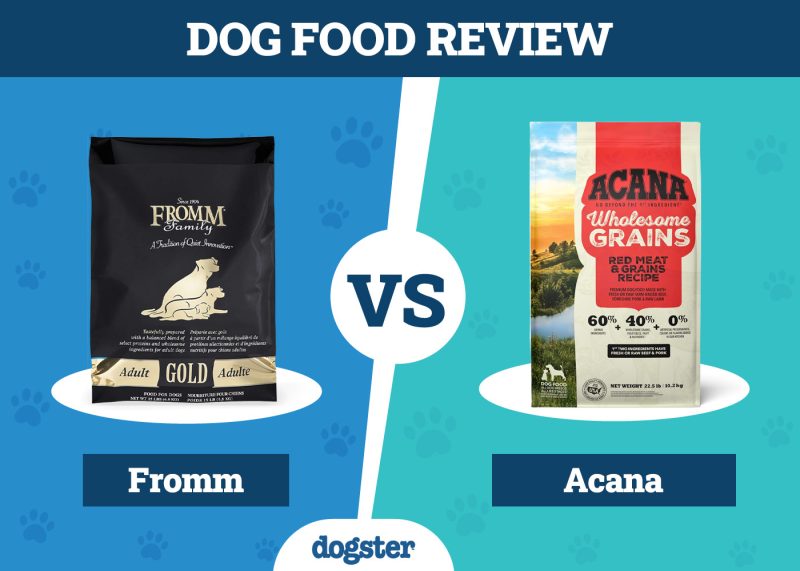Can dogs have pollen allergies? Yes, they absolutely can! Just like people, dogs can react to pollen from trees, grass, and weeds. We may not always recognize the signs right away, however, because their symptoms are often quite different from ours. While people tend to sneeze, feel congested, and have itchy eyes, pollen allergies in dogs usually show up in their skin.

What Are the Signs of Pollen Allergies in Dogs?
- Redness of the skin (may only be certain parts of the body or everywhere)
- Excessive licking/chewing (especially the paws)
- Excessive scratching (particularly the legs, armpits, groin area, belly, and under the neck)
All of the licking, chewing, and scratching often leads to secondary skin infections (e.g., hot spots) and hair loss.
- Rubbing their eyes and face +/- discharge from the eyes
- Rhinitis (sneezing, discharge from the nose)
- Frequent ear infections


How Are Pollen Allergies Treated in Dogs?
Avoiding pollen is not very practical, unfortunately, but there are a number of options for managing dogs with pollen allergies.
1. Seasonal Allergies
If your pup has a predictable and fairly short allergy season (e.g., a few weeks per year), it may be reasonable to simply manage their symptoms as they come up.
- Bathing them after spending time outdoors to rinse away any pollen on their skin/fur
- Vacuuming, dusting, and replacing indoor air filters regularly
- Topical treatments (e.g., medicated shampoo/spray/cream)
- Oral anti-itch medication (e.g., Apoquel®, prednisone)
- Antibody therapy (i.e., Cytopoint® injections)
- Nutritional management (e.g., veterinary prescription diets and supplements designed to promote a healthy skin barrier, which may be more resistant to allergens)
2. Year-Round Allergies
For dogs with longer allergy seasons, and especially for those who are affected year-round, it often makes sense to consider immunotherapy.
The goal of immunotherapy is to desensitize the immune system to specific allergens (e.g., pollen). This is done by very gradually exposing the body to increasing amounts of the offending allergens, which are administered via injections under the skin or a liquid given by mouth.
The disadvantage of immunotherapy is that it takes a long time (up to a year) to see maximum improvement. It’s also important to note that while most dogs respond well to immunotherapy, it doesn’t work for all pups.
3. Food Allergies
Don’t forget to manage food allergies (if your pup has any).
Dogs with environmental allergies often have food allergies as well. If we can limit the total number of allergens they are exposed to, we often have better success managing their symptoms.
Unfortunately, there are currently no accurate diagnostic tests for food allergies in dogs, so for now we have to rely on elimination diet trials. This does not mean simply trying a bunch of different types of dog food!
A proper elimination diet has very limited (or hydrolyzed) ingredients, and you must be extremely strict about what your pup eats for the duration of the trial (usually 8-12 weeks). It is not something to undertake lightly, so please talk to a veterinarian before attempting to conduct a diet trial on your own.
Did you know you can speak to a veterinarian without having to travel? Just head over to PangoVet. It's our online service where you can talk to a vet online and get the advice you need for your pet — all at an affordable price!


Frequently Asked Questions
Can Any Dog Develop Pollen Allergies?
Affected dogs are thought to have a genetic predisposition for pollen allergies, which likely explains why they seem to be more common in certain breeds. That being said, however, dogs of any breed (even mixed breeds) can develop a pollen allergy.
How Are Pollen Allergies Diagnosed in Dogs?
You and/or a veterinarian may suspect that your dog has pollen allergies if they show any of the signs listed above at certain times of year (i.e., when pollen counts are high).
Once the vet has ruled out other causes of itching (e.g., parasites, skin infections), intradermal skin testing (IDT) is one of the best ways to determine exactly which pollen(s) your pup is allergic to. For this test, a veterinarian injects small amounts of different allergens into the skin in a grid pattern, and notes which ones cause a reaction (redness and swelling at the injection site).
This type of testing is usually performed by a veterinary dermatologist, and pets are typically given some sedation to minimize stress and discomfort during the procedure.
For some patients, serum allergy testing (taking a blood sample to test for environmental allergies) may be more appropriate, or it may be recommended in addition to IDT for the most accurate results.
When Are Pollen Allergies Most Likely to Show Up in Dogs?
The first signs of pollen allergies usually appear in dogs between six months and three years of age.
Can a Dog’s Pollen Allergies Be Cured?
Unfortunately, no. Affected dogs require lifelong management.


Conclusion
If your canine friend seems excessively itchy at certain times of the year, and especially if you notice your seasonal allergies flaring up around the same time, they might be allergic to pollen. While there is currently no cure for allergies, we have many great treatment options to help keep your pup comfortable when the pollen is flying.
- See also: Can Dogs Be Schizophrenic?
Featured Image Credit: emkanicepic, Pixabay






















